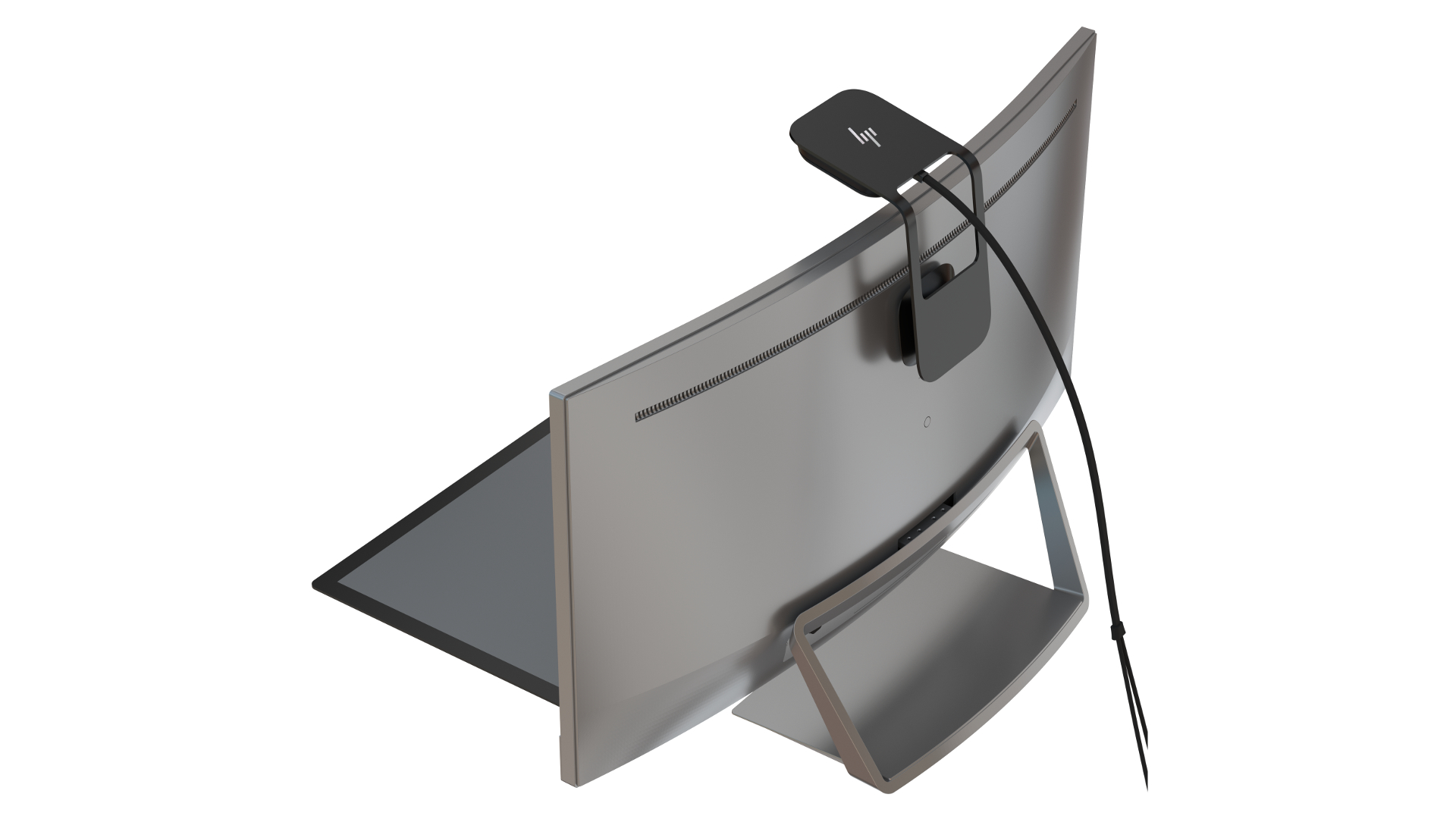HP’s Z 3D Camera makes it easy as pie to scan real-world objects to your PC
SLAM tracking and scanning tech makes it all a breeze

HP has unleashed a new 3D camera over at CES that's designed to make scanning objects in three dimensions a snap for creative pros like computer graphics artists or game developers.
The HP Z 3D Camera attaches to the top of your monitor, with a companion scan mat being placed underneath the downward-facing camera. You can then scan any real-world object placed on the mat – or rotated around in your hands underneath the camera – to create a lifelike 3D digital image on your computer.
The device uses 3D ‘SLAM’ (simultaneous localization and mapping) tracking and scanning tech to construct the model, while removing your hands from the digitally recreated object.

Those objects can then be employed in whatever application you require, such as, for example, using them in VR or mixed reality apps or games. The device is specifically made for physical-based rendering and virtual reality workflows, utilizing computer graphics-friendly resolutions that maintain separate texture maps.
You can export models to Paint 3D, PowerPoint 3D or Mixed Reality Viewer under Windows 10.

Flexible friend
The Z 3D Camera can also capture 2D documents, and can be used for sharing live video, bringing your hands and desk into view when, say, collaborating over Skype.
Note that you will need a Windows 10 PC with a minimum of an Intel Core i7-4709S (Haswell) processor or better, along with 16GB of system RAM, and a GeForce GTX 960M or better GPU for 3D capture.
Sign up for breaking news, reviews, opinion, top tech deals, and more.
Furthermore, you’ll need to have a monitor with a flat back to attach the camera successfully (HP notes it’s compatible with most current HP Z and E series monitors).
The new 3D camera will go on sale in March over in the US at the cost of $599 (around £440, AU$760).
- New year, new tech – check out all our coverage of CES 2018
Darren is a freelancer writing news and features for TechRadar (and occasionally T3) across a broad range of computing topics including CPUs, GPUs, various other hardware, VPNs, antivirus and more. He has written about tech for the best part of three decades, and writes books in his spare time (his debut novel - 'I Know What You Did Last Supper' - was published by Hachette UK in 2013).